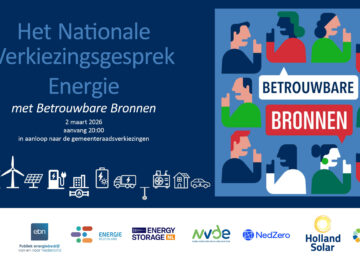TenneT makes optimizations to improve electricity system stability
TenneT during a webinar on May 27, 2025 shared new measures and insights to strengthen the stability of the Dutch electricity system and reduce imbalance fluctuations. Energy Storage NL has long been advocating, among other things, a shortening of the publication delay balance delta and a Fast Response product (FFR) and sees that these points are now being taken up by TenneT. The focus of the new measures is thereby on addressing operational challenges. These measures are crucial for a stable European energy system. For more details refer to we the summary of the Webinar.
Operational challenges and system bottlenecks
- Frequency enforcement targets are regularly exceeded, with peaks of up to 2 GW. Europe sets limits for maximum exceedance. TenneT expects to exceed them already before the end of 2025, indicating deteriorating frequency quality.
- With an activation requirement of only 20 MW, the balance delta sometimes already shows the price for 100 MW, leading to inefficient use of control power.
- Previous measures, such as the delay on the balance delta, have not led to a decrease in control state 2. The current adjustments may even lead to an increase in control state 2 in some cases, because TenneT prioritizes operational stability over specifically controlling for this control state.
Shortening publication delay balance delta
On December 3, 2024, the publication of the balance delta was delayed to 5 minutes to reduce fluctuations in control state. This measure was not sufficiently effective, partly due to seasonality and the increase in renewable energy. In week 27 or 28 of 2025, the publication delay will be reduced to 2 minutes to facilitate real-time corrections. In addition, the refresh rate of balance data will be increased from 60 seconds to 12 seconds.
Future market improvements
TenneT is working on further optimizations to increase system flexibility and responsiveness, viz.:
- Switch from activations per 1 MW to 100 kW for more accurate responses to market signals.
- TenneT encourages voluntary ramping rates up to 100% per minute, and examines whether a ramping rates of 1500% can be allowed. This would result in a Full Activation Time of 4 seconds, which is possible for battery systems.
- TenneT will investigate whether a Fast Frequency Response product can be implemented in a European context. Activation does not have to be as fast as where 100% of power has to be activated within 4 seconds.
- Introduction of shorter auctions for greater flexibility. 4-hour auctions for aFRR (Q4 2025)
Outlook
With these measures, TenneT aims to create a more robust and flexible electricity system that can better meet the challenges of renewable energy and European frequency requirements. Stakeholders will be briefed again on progress in September 2025.





